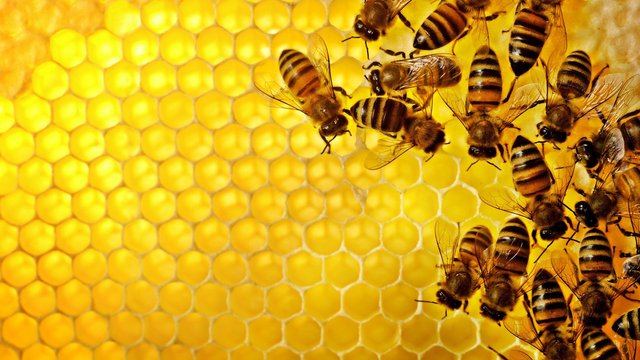
A little more than 10 years prior, beekeepers started announcing aggravating decreases in bumble bee populaces. Honey bees, they stated, were leaving the hive and not returning. The wonder, now known as state crumple clutter, is disturbing not just as a result of the focal part honey bees play in vegetation around the globe—and hence most other life—yet in addition on the grounds that nobody knew why the decrease was going on or how to stop it. A few conceivable causes have since been recognized, yet that hasn't kept the vanishings.

Be that as it may, new information give some explanation behind good faith. As indicated by a report by the U.S. Branch of Agriculture discharged Tuesday, bumble bee populaces are on the ascent. As of April, an expected 2.89 million honey bee states existed over the U.S., an expansion of 3 percent contrasted with April 2016.
Province crumple scatter makes maintaining a hive troublesome. At the point when working drones unexpectedly leave, the ruler honey bee is left with only a couple of medical caretaker honey bees to raise the staying youthful hatchlings. In spite of the fact that the settlement is left with abundant nourishment following the vanishing of the specialists, the hive can't work without their commitment, in the end prompting its passing. Province crumple clutter alludes to the blend of occasions that prompt that obliteration.

Neonicotinoid, Bayer, Pesticides Kill Honey Bees
Bayer who recently bought Monsanto and now deals In the same poisons, Is a major producer of neonicotinoids and a new large scale study shows that neonicotinoid pesticides harm bees.
The most extensive study to date on neonicotinoid pesticides concludes that they harm both honeybees and wild bees. Researchers said that exposure to the chemicals left honeybee hives less likely to survive over winter, while bumble bees and solitary bees produced fewer queens. The study spanned two thousand hectares across the UK, Germany and Hungary and was setup to establish the "real world" Impacts of the pesticides.
Neonicotinoids were placed under a temporary ban, In Europe In 2013, after concerns about there Impact on bees. The European commission said that It Intends to put forward a new proposal to further restrict the use of the dangerous chemicals.
Professor Richard Pywell, from the centre for the Ecology and Hydrology In Oxfordshire, who carried out the research said: "Our findings are a cause for serious concern, we have shown for the first time the negative effects of neonicotinoid coated seed dressings on honeybees and we've also shown similar negative effects on wild bees."
"This Is Important because many crops on Earth are Insect pollinated and without pollinators we would struggle to produce some foods."
Downvoting a post can decrease pending rewards and make it less visible. Common reasons:
Submit
tk's bro
Downvoting a post can decrease pending rewards and make it less visible. Common reasons:
Submit